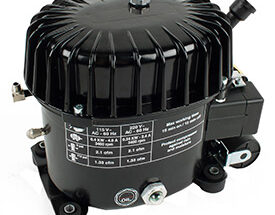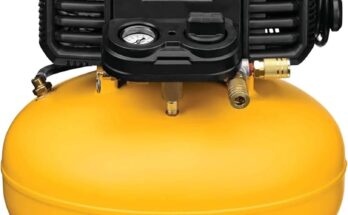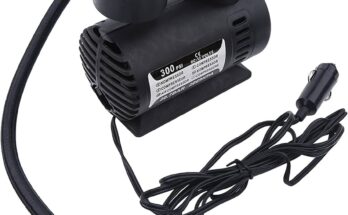Introduction
If you’ve ever experienced a malfunctioning appliance, chances are you’ve encountered issues with its compressor. It’s often believed that compressor replacement is a daunting task best left to professionals. However, with the right knowledge and guidance, you can tackle this project yourself, saving both time and money. In this blog, we’ll debunk common myths surrounding compressor replacement and provide expert tips for a hassle-free experience.
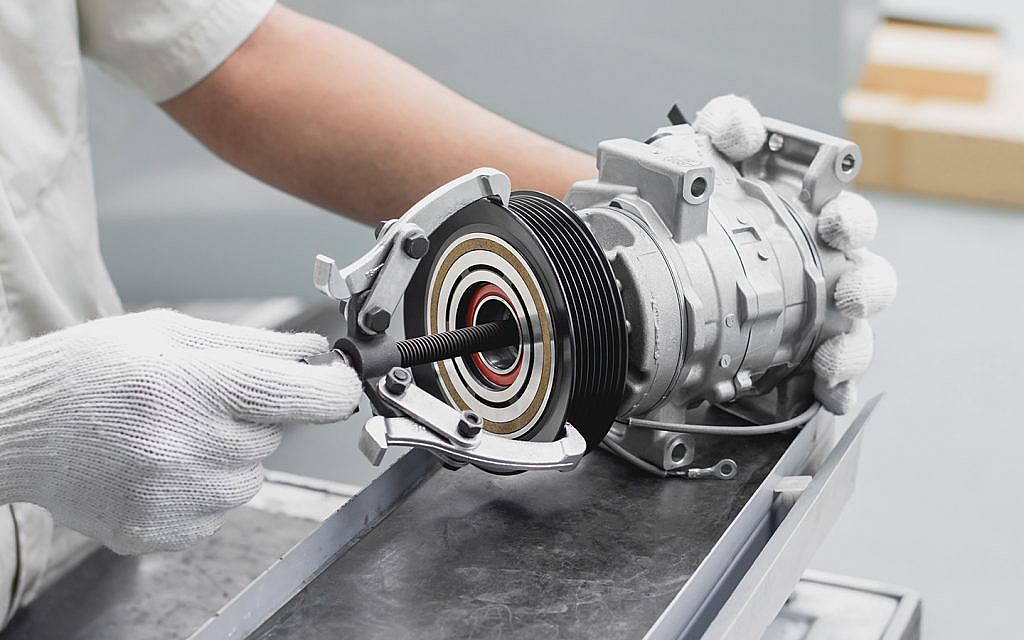
Photo by: dubizzle.com
Understanding Compressor Replacement
Before diving into the nitty-gritty of compressor replacement, it’s essential to understand what a compressor is and its role in various appliances. A compressor acts as the heart of refrigerators, air conditioners, and other cooling systems, circulating refrigerant to facilitate the cooling process. Over time, compressors may wear out or fail due to factors such as age, wear and tear, or improper maintenance.
Signs Your Compressor Needs Replacement
Recognizing the signs of a failing compressor is crucial to prevent further damage to your appliance. Keep an eye out for common indicators such as unusual noises, insufficient cooling, or frequent breakdowns. If your refrigerator struggles to maintain temperature or your air conditioner fails to cool effectively, it may be time to consider compressor replacement. Other signs include excessive energy consumption and visible leaks around the compressor unit.
DIY vs. Professional Compressor Replacement
When faced with compressor issues, many homeowners wonder whether to tackle the replacement themselves or enlist the help of a professional. While DIY replacement can save money upfront, it requires technical skills and knowledge of refrigeration systems. On the other hand, hiring a professional ensures expertise and guarantees proper installation. Consider factors such as your comfort level with DIY projects, the complexity of the replacement process, and your budget before making a decision.
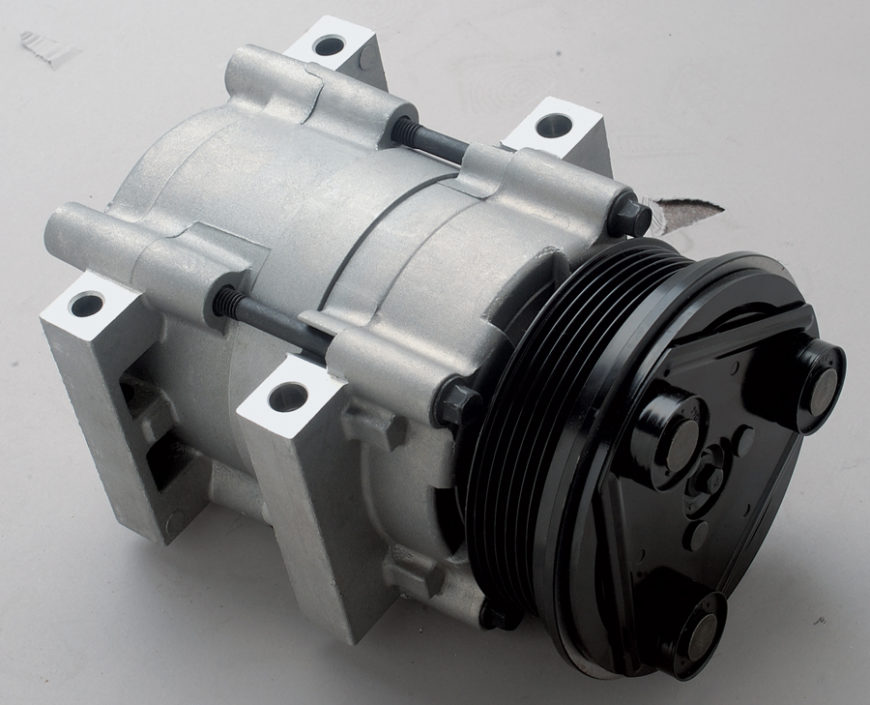
Photo by: autozone.com
Steps for Hassle-Free Compressor Replacement
If you opt for DIY compressor replacement, follow these steps for a smooth and successful process:
1. Safety First:
Before starting, ensure the appliance is unplugged and all power sources are disconnected. Wear protective gear, including gloves and safety goggles, to prevent injuries.
2. Identify the Problem:
Determine whether the compressor is indeed the source of the issue by conducting a thorough inspection and diagnostic tests.
3. Gather Supplies:
Gather the necessary tools and replacement parts, including a new compressor, refrigerant, and any additional components recommended by the manufacturer.
4. Remove the Old Compressor:
Carefully disconnect the old compressor from the appliance, following manufacturer instructions and safety guidelines. Dispose of the old compressor responsibly.
5. Install the New Compressor:
Install the new compressor according to manufacturer specifications, ensuring proper alignment and connections. Take care not to overtighten bolts or damage delicate components.
6. Test and Monitor:
After installation, plug in the appliance and test its functionality. Monitor for any unusual noises or performance issues, and address them promptly.
By following these steps and exercising caution throughout the process, you can successfully replace your compressor and restore your appliance’s functionality.
In the next sections, we’ll delve deeper into choosing the right compressor, cost-effective replacement options, and maintenance tips to extend your compressor’s lifespan. Stay tuned for more expert advice on hassle-free compressor replacement!
Signs Your Compressor Needs Replacement
It’s a common misconception that compressor issues are rare and only occur in old appliances. However, the truth is that compressors can fail unexpectedly, regardless of the age of the appliance. Recognizing the signs of a failing compressor early on can save you from costly repairs or replacements down the line. Let’s delve into some common indicators that suggest your compressor may need replacement.
Unusual Noises
One of the first signs of compressor trouble is strange noises emanating from your appliance. If you notice loud clanking, banging, or grinding sounds coming from the compressor unit, it could indicate internal damage or mechanical failure. These noises often occur when the compressor is struggling to operate, and ignoring them can lead to further damage.
Insufficient Cooling
Another telltale sign of compressor issues is inadequate cooling performance. If your refrigerator fails to chill food properly or your air conditioner blows warm air instead of cool, it could signal compressor malfunction. Inefficient cooling may result from reduced refrigerant circulation or compromised compressor functionality, requiring prompt attention to restore optimal performance.
Frequent Breakdowns
Repeated breakdowns and malfunctions are clear indicators that something is amiss with your appliance’s compressor. If you find yourself constantly calling for repairs or experiencing recurring issues despite previous fixes, it’s likely that the compressor is the culprit. Instead of investing in temporary solutions, consider replacing the compressor to address the root cause of the problem effectively.
Excessive Energy Consumption
A sudden spike in energy bills without a corresponding increase in usage can point to compressor inefficiency. When compressors begin to fail, they often consume more energy to maintain desired temperatures, resulting in higher utility costs. Monitoring your energy consumption and addressing any abnormalities can help identify compressor issues early on and prevent further financial strain.
Visible Leaks
Leaks around the compressor unit, such as oil or refrigerant leaks, are clear signs of compressor malfunction. These leaks may indicate damage to internal components or deteriorating seals, compromising the compressor’s performance and safety. If you notice any fluid leakage or unusual odors near the compressor, it’s essential to address the issue promptly to prevent further damage to your appliance.
In conclusion, being vigilant and attentive to these signs can help you identify compressor issues early on and take proactive measures to address them. Whether it’s unusual noises, insufficient cooling, frequent breakdowns, excessive energy consumption, or visible leaks, don’t ignore the warning signs. By recognizing the need for compressor replacement early on, you can avoid costly repairs and ensure the continued functionality of your appliance. Stay tuned for more expert tips on hassle-free compressor replacement and maintenance!
DIY vs. Professional Compressor Replacement
Contrary to popular belief, you don’t always need to rely on professional help when it comes to replacing your compressor. While hiring a professional certainly has its advantages, such as expertise and guaranteed results, opting for a DIY approach can also be a viable and cost-effective option for many homeowners. Let’s explore the pros and cons of both DIY and professional compressor replacement to help you make an informed decision.
DIY Replacement:
Taking the DIY route allows you to save money on labor costs and gives you the satisfaction of completing the task yourself. Additionally, DIY replacement grants you greater control over the process, allowing you to work at your own pace and ensure that the job is done to your satisfaction. With the wealth of information and tutorials available online, even novice DIY enthusiasts can successfully replace a compressor with the right tools and guidance.
However, DIY replacement requires a certain level of technical skill and familiarity with refrigeration systems. If you’re not comfortable working with electrical components or handling refrigerants, DIY replacement may not be the best option for you. Furthermore, improper installation can lead to further damage to your appliance and potentially hazardous situations. It’s essential to weigh your skills and comfort level before embarking on a DIY compressor replacement project.
Professional Replacement:
Hiring a professional for compressor replacement offers several benefits, including expertise, efficiency, and peace of mind. Professional technicians have the necessary training and experience to diagnose issues accurately and perform replacements safely and efficiently. By entrusting the job to professionals, you can rest assured that your appliance will be in good hands and that the replacement will be done correctly the first time.
Additionally, professional replacement often comes with warranties or guarantees, providing added protection and assurance against future issues. While professional services may come with a higher upfront cost compared to DIY, the investment can save you time, effort, and potential headaches in the long run. For those with limited technical skills or busy schedules, hiring a professional may be the most practical and stress-free option.
Making the Decision:
Ultimately, the decision between DIY and professional compressor replacement depends on your individual circumstances, preferences, and comfort level. Consider factors such as your level of expertise, available time, budget, and the complexity of the replacement task. If you’re confident in your abilities and willing to put in the effort, DIY replacement can be a rewarding and cost-effective option. However, if you prefer the assurance of professional expertise and convenience, hiring a professional may be the way to go.
Regardless of which option you choose, prioritizing safety and thoroughness is key. Whether you decide to tackle the replacement yourself or enlist the help of professionals, ensure that the job is done correctly and safely to avoid further complications. By weighing your options and making an informed decision, you can ensure a smooth and successful compressor replacement experience. Stay tuned for more expert tips on hassle-free compressor replacement and maintenance!
FAQs (Frequently Asked Questions)
Q: Is compressor replacement a common issue in appliances?
A: Yes, compressor issues can arise in various appliances like refrigerators and air conditioners, especially as they age or due to lack of maintenance.
Q: How do I know if my compressor needs replacement?
A: Look out for signs like unusual noises, insufficient cooling, frequent breakdowns, increased energy bills, or visible leaks around the compressor unit.
Q: Can I replace the compressor myself?
A: Absolutely! DIY compressor replacement can be a cost-effective option if you have the necessary skills and are comfortable handling electrical components and refrigerants safely.
Q: What tools do I need for DIY compressor replacement?
A: You’ll typically need basic tools like screwdrivers, wrenches, pliers, and a multimeter, along with replacement parts like a new compressor and refrigerant.
Q: How long does compressor replacement take?
A: The time it takes to replace a compressor can vary depending on factors like the appliance type, the complexity of the replacement, and your level of experience. It can range from a few hours to a full day.
Q: How much does professional compressor replacement cost?
A: Professional compressor replacement costs can vary depending on factors like the appliance type, the extent of the damage, and the technician’s rates. It’s best to get quotes from multiple providers to compare prices.
Q: What are the benefits of hiring a professional for compressor replacement?
A: Hiring a professional ensures expertise, efficiency, and peace of mind. Professionals have the training and experience to perform replacements safely and effectively, often with warranties or guarantees for added protection.
Q: Will replacing the compressor fix all my appliance issues?
A: While replacing the compressor can resolve many problems, it’s essential to address any underlying issues or related components that may contribute to the problem. Regular maintenance and proper usage can also help prevent future issues.
Q: How can I extend the lifespan of my new compressor?
A: Regular maintenance, such as cleaning coils and filters, ensuring proper ventilation, and scheduling professional inspections, can help extend the lifespan of your new compressor.
Q: What should I do if I encounter problems during or after compressor replacement?
A: If you encounter issues during the replacement process or notice performance issues after replacement, it’s essential to troubleshoot and address them promptly. Consult manufacturer manuals, online resources, or seek professional assistance if needed.
Q: Can I upgrade my compressor to a more energy-efficient model?
A: Yes, upgrading to a more energy-efficient compressor can improve performance and save on energy costs in the long run. Consult with a professional to explore your options and ensure compatibility with your appliance.

